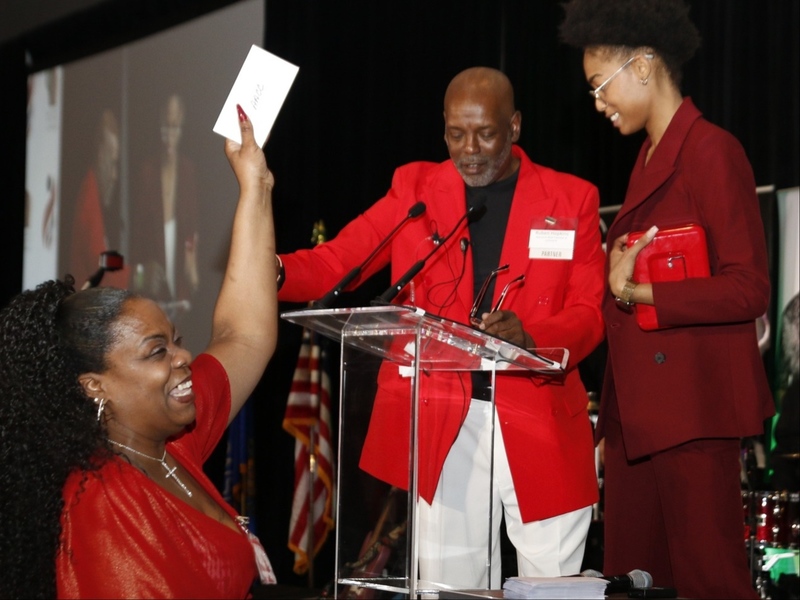OnMilwaukee wants to help your small business grow. Want some additional small business resources and support? The Idea Collective small business incubator can help – check out more of their work here.
Aside from guerrilla marketing, which is being anywhere and everywhere (example "one call …"), thus having to spend a boatload of money, there is a better way to gain brand awareness, and it is much less annoying!
Most people think that colors, logos, taglines and ads are what marketing consists of. However, those only consider one sense: sight. What about the other four senses? Your five senses are tied to emotions – and emotions are tied to memory.
Here are the six baseline emotions and examples of the industries that like to trigger them:
- Happiness – food or greeting cards
- Sadness – funeral homes
- Fear – home security systems
- Disgust – animal protection agencies
- Anger – politics
- Surprise – party stores
Out of these six baseline emotions, which one(s) do you want your audience to feel when they think of your products or services?
Emotional branding
According to an article in Harvard Business Review, tying emotions to a brand can have a huge payoff, yet pinpointing which exact emotions connect to your brand is a bit of guesswork (as well as science), because a lot of the time consumers don’t know what emotion they are feeling in the first place.
Have you ever bought one product over another based on your "gut decision" versus logic? This is where emotion overrides logic in your buying habits. The relationship between a brand and a buyer that is tied to emotion is more likely to withstand temptation to defect solely based on price or convenience.
Sensory branding
You can build brand awareness by using the five senses and tying them to your customer’s emotions. These are just a few examples of using the five senses in your marketing.
Sight: color, images, text, graphics, video
- Networking: Physically showing up at networking events on a consistent basis will help with brand recognition and create a sense of trust and familiarity with other members of the organization.
- Using the same color palette and logo on all of your marketing increases brand recognition by 80% – find something you love and stick with it!
For example, in an article by Adeo, they show how using color brings out emotion in some popular brands:
Sound: one voice for audio ads/voiceovers, sound effects, theme music
- Networking: Your own voice will be recognized when there is consistency in your networking efforts.
- Using the same voice for videos and radio ads also helps with brand recognition. Organizations often use one spokesperson or actor for their television ads. You don't even need to be looking at your TV when an ad comes on to recognize the voice and often the brand associated with them.
- Jingles have been around since 1927 when Wheaties used on in their radio ads. Since then, they have been causing earworms in our head.
For example, I bet dollars to donuts you can finish the words to these jingles:
- “Give me a break, give me a break, break me off a piece of that …”
- “The best part of waking up, is …”
- “Like a good neighbor …”
Touch: soft, rough, metallic, wood, wet, dry
- Printed collateral: Is your paper collateral simply printed on plain 8.5x11 paper? Or does it have a unique shape, thickness and texture to it?
- Branded giveaways like pens, journals, stress balls, insulated cups and phone accessories are common items that offer tactile sensory impressions with your audience. Give away something useful that will be used over and over again or put on their desk; this way your brand is front of your audience regularly.
Example: Two mortgage companies sending direct mail to customers – one mailer is standard rectangular size, yet the other is made of thicker paper and dye cut into the shape of a house. Which one would you look at?
Smell: sweet, woody, citrus, pungent, mint, savory (to name a few)
- Scents can be strongly tied to emotions. This technique is especially good for brick and mortar locations. Using scents and fragrances to either calm or excite your audience – it all depends on how you want them to act when they get there.
- The human nose can distinguish more than 10,000 different odors, and studies have shown that 75% of emotions are triggered by smell.
Example: A spa uses calming scents like lavender or eucalyptus to relax their customers as they walk in. Meanwhile, a restaurant will use savory and sweet scents to turn on the taste buds.
Taste (mmm, food – in your best Homer Simpson voice)
This would be for you in the food and beverage industry ... obviously. Using sight and sound to entice your audience to buy your product is key.
Examples include:
- The sight of melting chocolate oozing out of a cake on your Instagram
- The crunching sound of potato chips in a TV or radio ad
- The aroma of freshly brewed coffee that hits you when you enter your favorite café
I mean, how many times have you come home from the grocery store or Costco with items that you never intended on buying because the samples were so good?
This blog only touches the tip of the iceberg when it comes to how you use the five senses in your marketing, yet my hope is that you gained a better understanding of how emotions and senses are used to increase brand awareness and recognition.
Pro tip
On average, it takes five to seven encounters with your brand before someone will remember it, so use a mixture of senses and emotions to increase brand awareness. Take a look at your current marketing and see what emotions it triggers. Are they the right ones?
Until next time, happy marketing. If you’d like to talk more about your branding, join the Idea Collective and benefit from the brilliant minds of its members.





